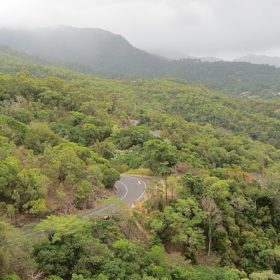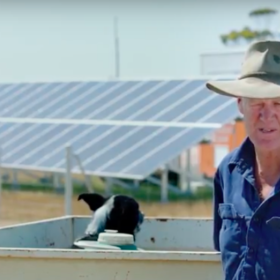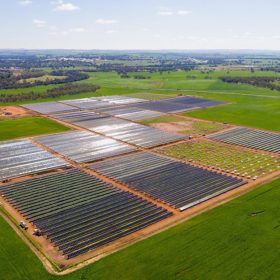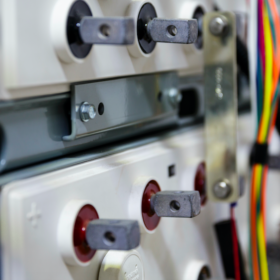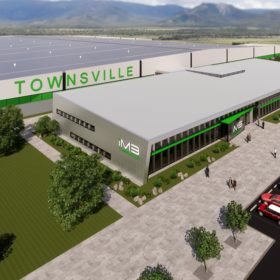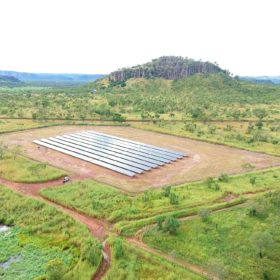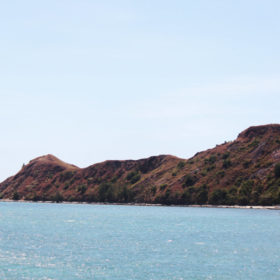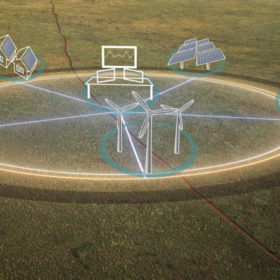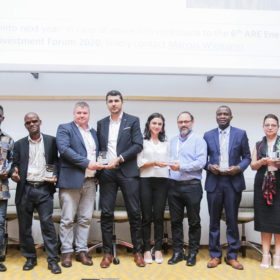Australia’s first solar to hydrogen-based microgrid gets nearly $1 million in federal funding
A grant of nearly $1 million has been announced for a 100% renewable energy project which will see the World Heritage-listed Daintree Rainforest reduce its reliance on diesel fuel to generate power.
Farmers want energy policy overhaul, more support for solar and batteries
In the run-up to the May federal election, thirteen farmer and irrigator groups have come up with a list of policy requests to put a downward pressure on electricity prices and preserve the sector’s competitiveness. Among other things, the groups have called for more government support for solar PV and battery storage installed on site, and removal of barriers to connecting on-farm generation to the grid.
Carnegie gets $5 million lifeline, bids for liquidated microgrid arm EMC revealed
Following Carnegie Clean Energy’s voluntary administration, the administrators have revealed the bids its solar microgrid arm managed to attract. Meanwhile, a plan to restructure the company’s core wave power business has been approved by creditors, along with a decision to liquidate the EMC business.
Interactive map highlights Australian lead-acid storage projects
While lithium ion or even flow battery projects continue to dominate headlines, a report published today has highlighted the continuing role being played by lead acid battery storage. The report from the U.S.-based Consortium for Battery Innovation (CBI) illustrates how lead-acid batteries are being applied to a wide range of applications, and use cases, today.
Major progress on Townsville battery “gigafactory” study
Significant progress has been reported on the feasibility study which aims to progress the establishment of a 15 GWh lithium-ion battery factory in Townsville. The study is conducted by the Imperium3 Townsville consortium.
Northern Territory rolls out 10 MW of PV to power remote communities
Construction has been completed on the Solar Energy Transformation Program (SETuP), which has been touted as Australia’s largest rollout of solar power to remote communities to date.
New billing method and PV+storage for all-day energy supply on Philippine island
From four to 24 hours: before solar and storage, the 160 households on a Philippine had electricity for only four hours each day. This had negative impacts on the economic development of the islands. With support from the ADB, the island inhabitants now have 24 hour supply of clean energy, and new billing methods that suit the economic realities of poorer households.
AEMO’s VPP integration trial, decentralized energy exchange secure funding
The Australian Renewable Energy Agency (ARENA) will underpin two innovative distributed energy projects – a trial to integrate a virtual power plant into the National Energy Market and a digital marketplace for grid services provided by rooftop solar arrays, batteries and EVs owned by Australian homes and businesses.
Government unveils $50 million pot to power remote communities
The Coalition government has announced funding to support up to 50 off-grid and fringe-of-grid feasibility studies investigating whether building a microgrid can be a cost-effective solution. The studies will also look at whether existing off-grid capabilities can be upgraded with more up-to-date technology.
Tesvolt wins second international award for WA avocado farm project
German battery supplier and integrator Tesvolt has been recognized by the Alliance for Rural Electrification for its battery 48 kWh project at an avocado farm in Pemberton, in WA’s Southwest. The project integrates the lithium ion system with a 160 kWh saltwater battery and 53 kW solar array – allowing the farm to become 100% self sufficient.
